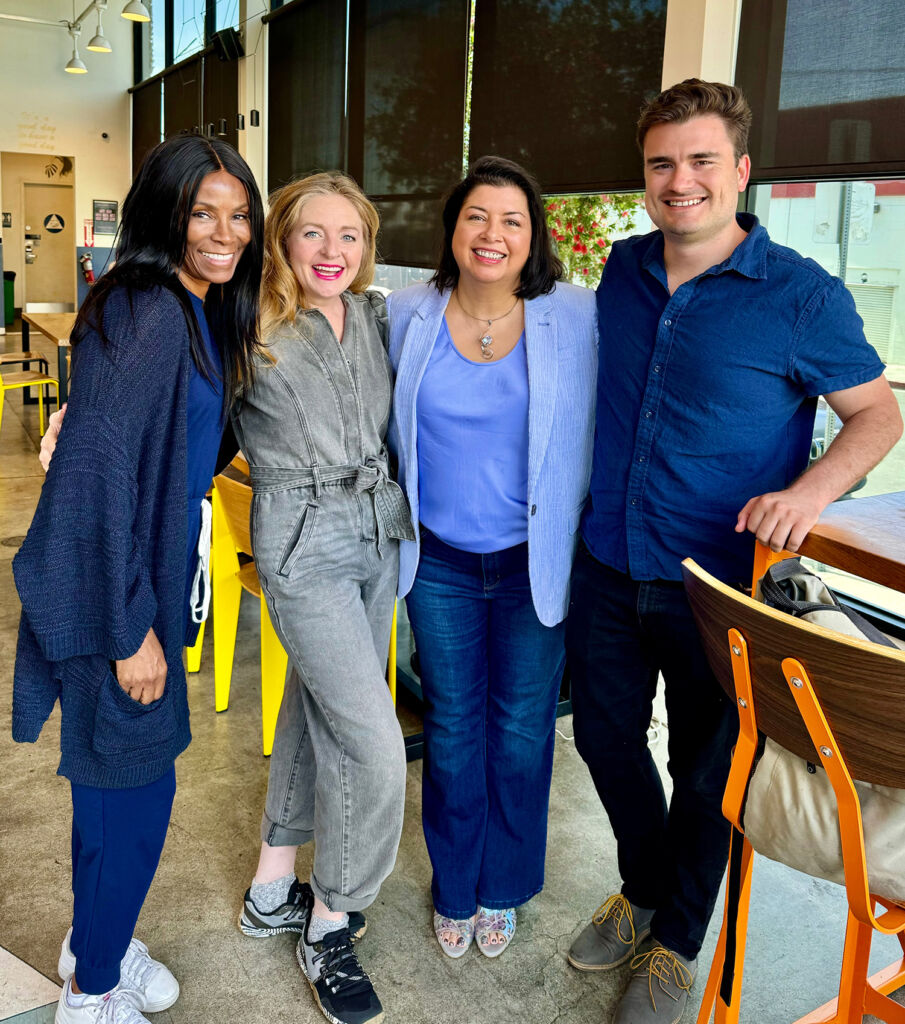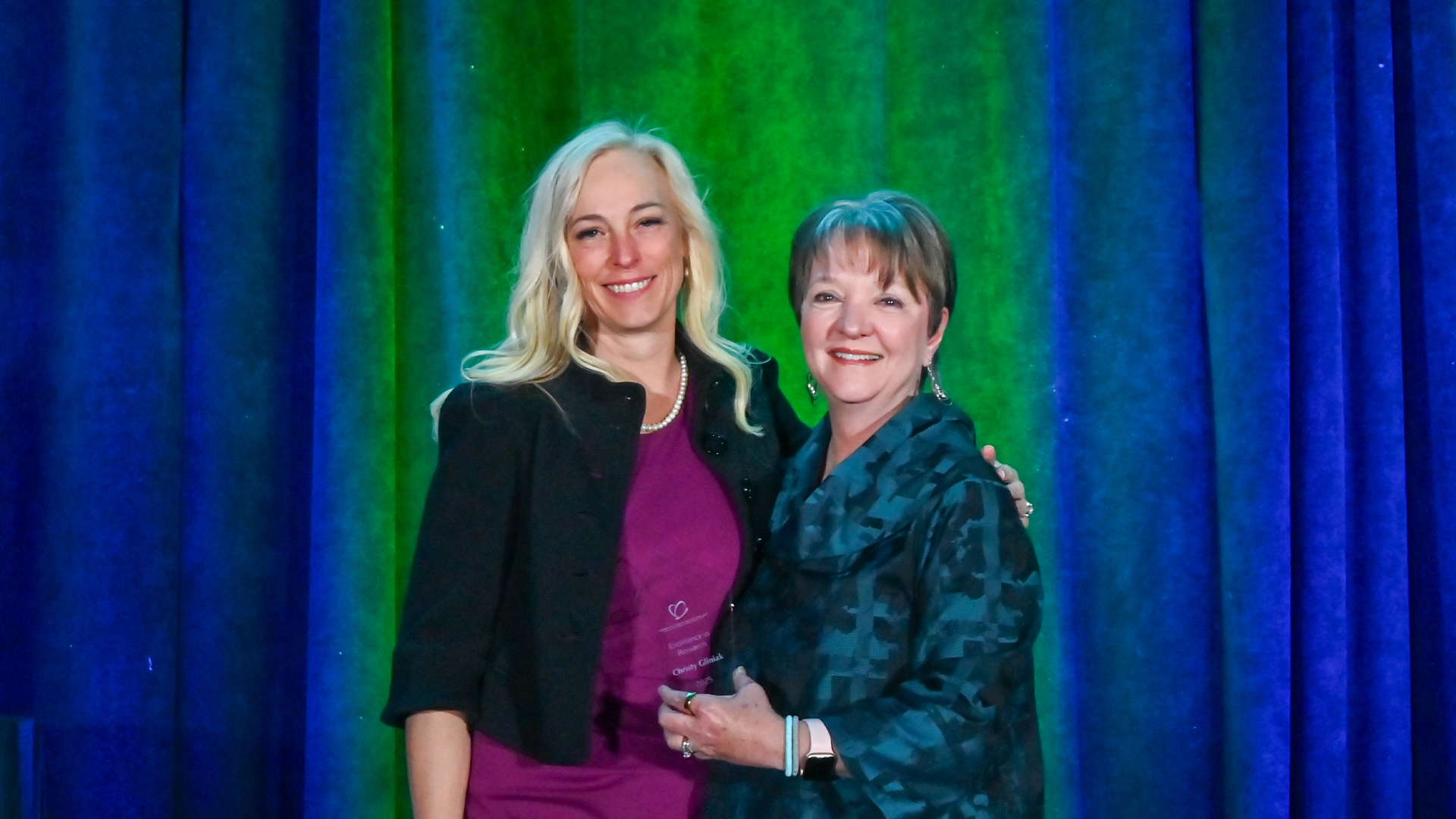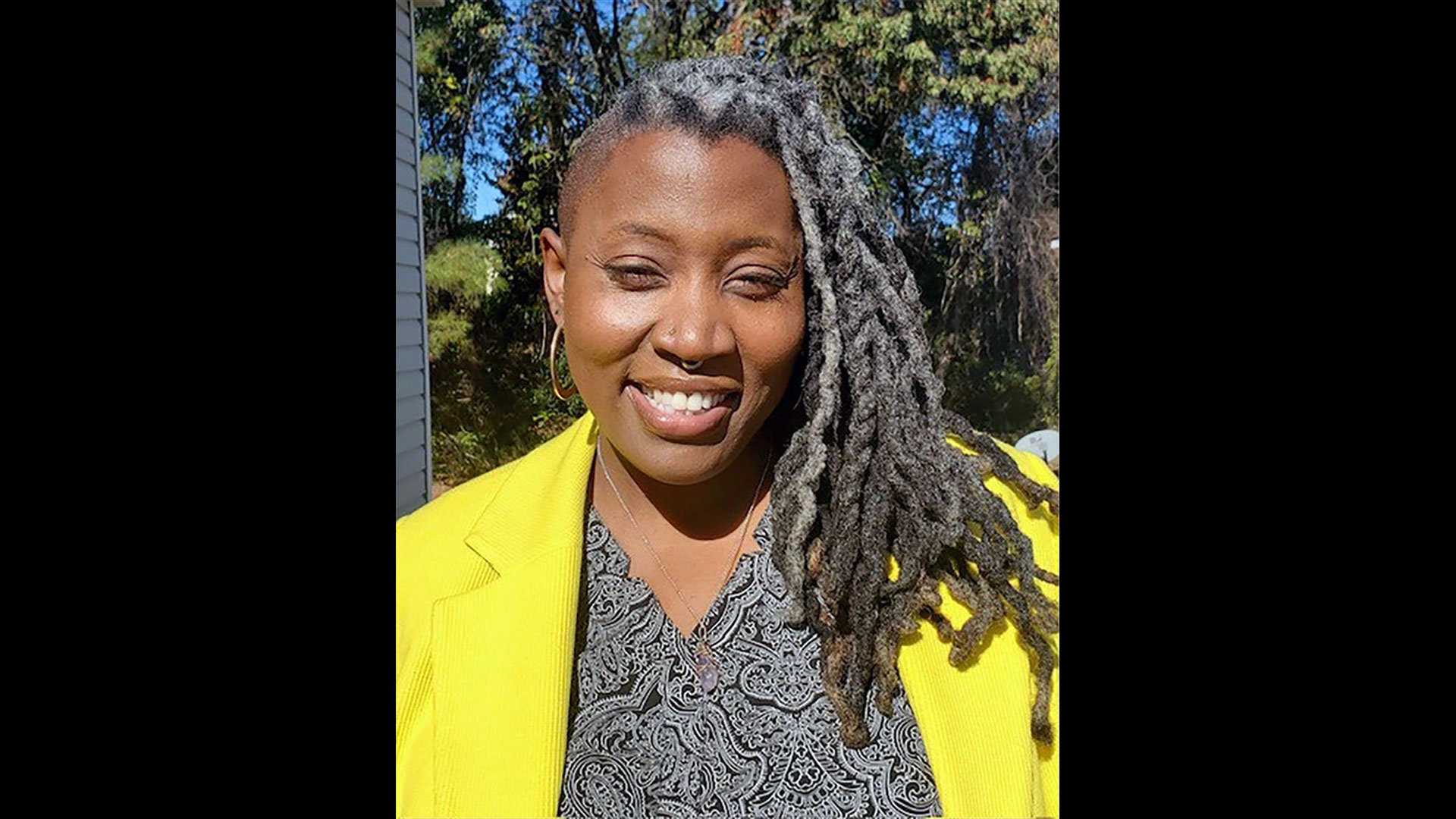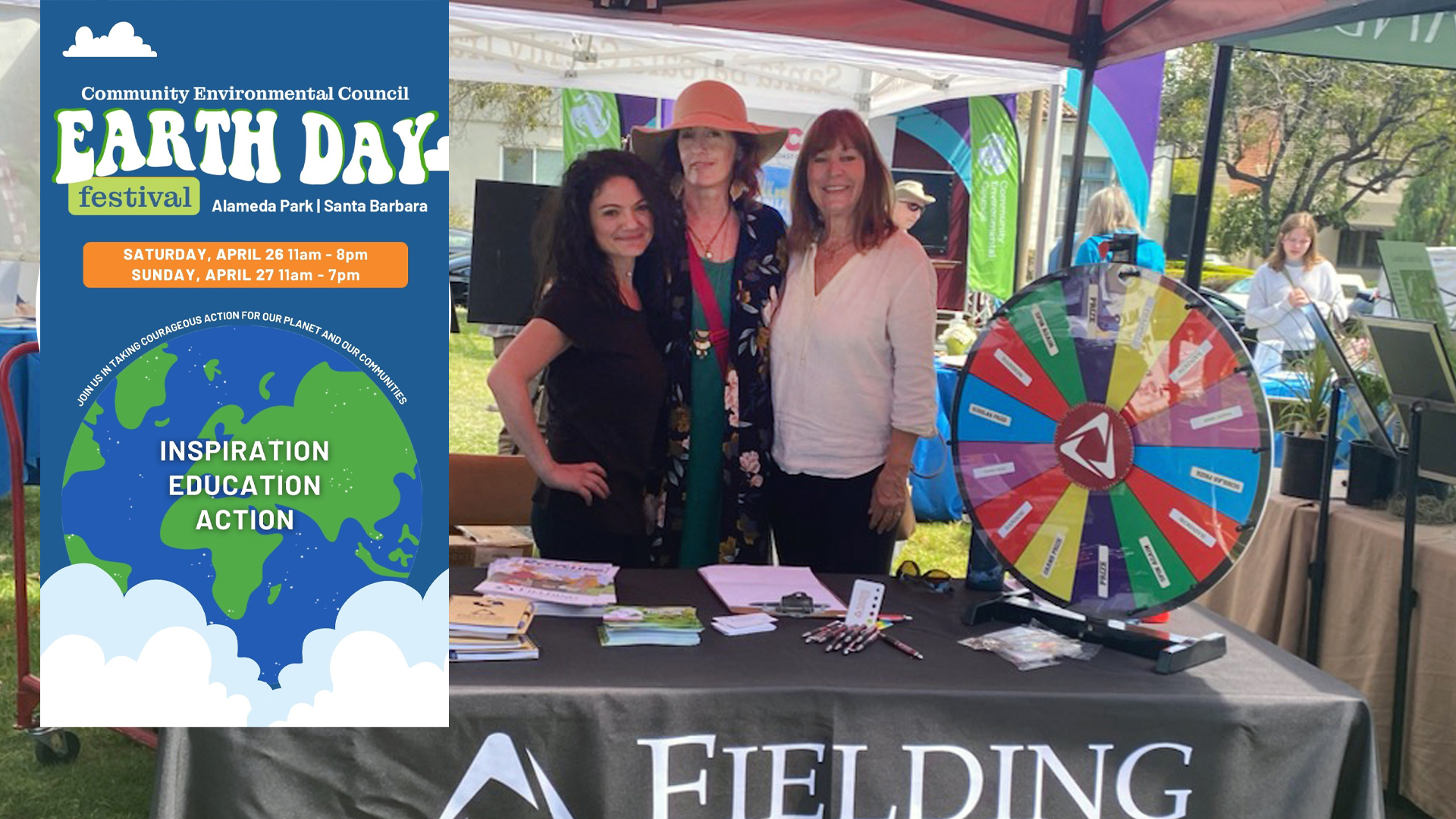Fielding University’s Media Psychology students are fostering connections beyond the classroom, with a flourishing series of Student Social events. From virtual gatherings to in-person Coffee Hours and online forums, these grassroots initiatives offer myriad opportunities for students at all levels— from new enrollees to alumni— to engage without any cost. Often!
Virtual and In-Person Networking Opportunities Abound

Media Psychology doctoral students at Coffee Hour/Hollywood: Stacy Griffin, Holly Beavon, Angel Burns, Perry Reed
Fielding’s social opportunities to network are proliferating in three ways: virtual Socials, in-person meetups by locale, and an online social platform, all hosted by fellow students. Although most events are described as an hour long, individual attendance duration is purposely open and at changing time slots. This gives flexibility to meet student needs around schedule demands otherwise.
Student Socials on Zoom allow participants to engage via video or audio, discussing everything from academic updates to media trends. These follow a loose format that varies depending on the turnout. Talking points might include new introductions, professional and personal updates, questions, specific needs, tips, how-tos, or current cultural and news events. Some students enter the meeting only to listen, sometimes while working, ill, or driving. Others add to the chat box with links to articles, books, and websites. Independent study strategies are exchanged. More than one meeting has evolved into research partnerships and conference collaborations.
Meanwhile, in-person “Coffee Hours” have spread from coast to coast, in New York, Chicago, and Los Angeles, with new cities like Las Vegas and Washington DC in the works. All hosts are cautioned to avoid making these “big” events, which might be perceived as another stressful obligation to busy students. Rather, last-minute appearances are acceptable, allowing too for brief drop-ins or lingering. Even in the event of no-shows, hosts are encouraged to take the hour as a personal break— or as organizer Angel Burns says, “your likely-needed moment of Zen!” The idea is to make the coffee hours a low-key comfort, a place to pause, and hub for kindred spirits. There is another way to reach beyond one’s location though, at any hour…
Fielding Connect, a Discord server, extends this community online, offering live chats and a rich repository of resources, organized by topic. Fielding Connect offers weekly dialogues, social-media-style posting, and linked content. Creator and PhD student Shana Pote has made onboarding easy with video tutorials. Collated by students across several Fielding schools, the server is a treasure trove of announcements, speaker events, queries, and recommendations. For Media Psychology students, representing the newest Fielding school to join the group, there is room to request or create content, as well as use private meeting rooms. It is another place to discover practical ideas and mentors.
Organic Interaction and Community Building
The informal nature of the social events encourages organic interaction, akin to the idle chit-chat valued in traditional educational settings. A relaxed environment helps students share not only feelings but useful knowledge, from navigating university systems (e.g. website, Library, Moodle, Dissertation Tracking System) to discussing course options, in a way that remote learning alone cannot provide. Checking in with classmates may enhance understanding expectations for an assignment, or recommending specific choices like electives and sections, for best fit. These beneficial interactions between students can offer both privacy and personalization, from those with recent or relevant history of the same courses.
Revolving hosts create local convenience with outreach
Online Zoom Socials are headed by media psychology doctoral student Angel Burns, with substitute hosts at the ready. Students are usually already set up from their Fielding study, to interact from home or anywhere, virtually. They may appear on or off-camera, even connecting from a phone. Several meetings are offered each term, with an eye to expansion by additional hosts, serving more time zones.
Coffee Hour hosts create convenience for themselves, initiating meetups based on their own location and schedule. These gatherings are for not only locals but travelers through their area—an advantage for conference attendees. It is a wonderful chance to physically meet those otherwise only seen on class rosters or Zooms. Volunteer hosts select a café or similar location close to them, send out email invitations to an opt-in list, and commit to sitting for an hour at their chosen time and public place. Meant as pop-ins, Coffee Hours are a rare, no-obligation introduction to potential friendships and assistance.
Past Coffee Hour hosts include PhD student Ashley Vargas, who held the first event in New York’s Midtown Manhattan; MA graduate Jeanine Riedl in Chicago; graduate Holly Beavon, PhD, in Hollywood; and PhD student Sarah Barker on virtual reality and Discord platforms. Future hosts and alternates are dynamically added, including new students and alumni, at revolving locations. Whether a benefit for alumni missing past camaraderie, or current students seeking experienced advice, coffee hours occasionally add in faculty guests, to further a sense of community. This is smart networking too.
Benefits of Social Connections
The philosophy behind these social encounters is simple: in-person learning advantages from casual conversation can significantly enhance the distance education experience. A peer-only environment allows for joking, commiserating, and questioning, as well as sharing wins (with those who actually understand what they are!). These gatherings aim to reduce stress, foster relationships, and provide a network of support that can ease graduate study. Instead of feeling isolated or uncertain, remote students gain confidence and leveraged efficiency, while bonding through shared experience.
Of course, Fielding’s formal organizations offering support too, such as the Alumni Association. The Alumni Association, directed by Hilary Lyn, is notable for being open to current students as well, with separate opportunities for involvement there. And the Office of Student Life and Thriving, headed by Cherjanét Lenzy, Ph.D., has a website of Fielding student support services.
Acting as complementary hubs, Student Socials are a way to informally discover collective resources available, especially the human ones.
Invitation to Join and Connect
Students interested in joining these socials or hosting a coffee hour are encouraged to reach out. Each connection made can transform the learning experience. As Angel puts it, finding even one Fielding comrade can make all the difference. Experience in graduate study is likely to be better, with less anxiety over the unknown and a greater sense of strength in togetherness. Best case scenarios are that students discover future professional collaborators, consultants, referrers… and ultimately, lifelong friends.
Please email Jennifer Alvarez (jalvarez@fielding.edu) to opt-in for Student Social invitations 💌 or to volunteer for hosting a Coffee Hour in your area ☕️☕️.
👋 “We’d love to get to know you!” 🤝
Join Over 7,500 Fielding Alumni Located Around The World!
Change the world. Start with yours.™






Get Social